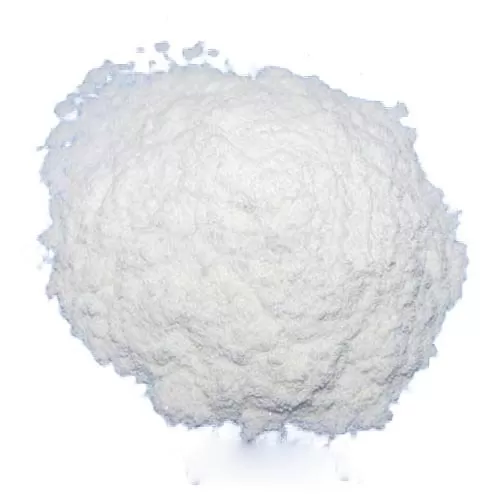-
 Absolutes
Absolutes
-
 Active Complexes
Active Complexes
-
 Actives and Peptides for Cosmetics
Actives and Peptides for Cosmetics
-
 Amino Acids
Amino Acids
-
 Food Flavorings
Food Flavorings
-
 Ayurveda
Ayurveda
-
 Vitamins
Vitamins
-
 Gelling Agents and Thickeners
Gelling Agents and Thickeners
-
 Hydrosols and Floral Waters
Hydrosols and Floral Waters
-
 Hydrolyzed Proteins
Hydrolyzed Proteins
-
 Fragrant and aromatic substances
Fragrant and aromatic substances
-
 Acids, Salts, Alcohols, and Alkalis
Acids, Salts, Alcohols, and Alkalis
-
 Preservatives and Antioxidants
Preservatives and Antioxidants
-
 Cosmetic Raw Materials
Cosmetic Raw Materials
-
 Dyes, Pearlescents, and Glitters
Dyes, Pearlescents, and Glitters
-
 Face Masks, Scrubs, and Dried Flowers
Face Masks, Scrubs, and Dried Flowers
-
 Oils, batters, macerates, oil mixtures
Oils, batters, macerates, oil mixtures
-
 Candle Supplies
Candle Supplies
-
 Melt and Pour Soap Bases
Melt and Pour Soap Bases
-
 Base for cosmetics, cream, serum, shampoo
Base for cosmetics, cream, serum, shampoo
-
 Fragrance Oils
Fragrance Oils
-
 Surfactants
Surfactants
-
 Peelings for Skin
Peelings for Skin
-
 Herbal Powders and Plant
Herbal Powders and Plant
-
 Silicones and Conditioning Surfactants for Hair
Silicones and Conditioning Surfactants for Hair
-
 Raw materials for dietary supplements
Raw materials for dietary supplements
-
 Packaging for Cosmetics and Perfumes
Packaging for Cosmetics and Perfumes
-
 Molds, Packaging, Tools
Molds, Packaging, Tools
-
 Organic Extracts
Organic Extracts
-
 Emollients for Cosmetics
Emollients for Cosmetics
-
 Emulsifiers
Emulsifiers
-
 Essential Oils
Essential Oils
Propionic Acid: A Powerful Preservative for Your Cosmetic Formulations
Welcome to Milo Wholesale, your one-stop shop for all things cosmetics in Ukraine! We understand the importance of high-quality ingredients for creating safe and effective skincare products. Today, we'll delve into the world of propionic acid, a versatile ingredient commonly used as a preservative in cosmetic formulations.
What is Propionic Acid?
Propionic acid is a short-chain carboxylic acid with a simple chemical structure (CH3CH2COOH). It occurs naturally in some foods like cheese and yogurt due to bacterial fermentation. In the cosmetic industry, propionic acid is primarily used for its antimicrobial properties. It helps prevent the growth of bacteria, fungi, and other microorganisms that can spoil cosmetic products and potentially cause skin irritation or infections.
Benefits of Propionic Acid in Cosmetics
- Enhanced Shelf Life: Propionic acid significantly extends the shelf life of cosmetic products, especially those containing water-based ingredients like creams, lotions, and shampoos. This translates to reduced waste and a better user experience.
- Broad-Spectrum Preservation: Propionic acid is effective against a wide range of microorganisms, including bacteria, yeast, and mold. This broad-spectrum activity makes it a valuable tool for preserving a variety of cosmetic formulations.
- Safe and Gentle: Propionic acid is generally considered safe for use in cosmetics at approved concentrations. It's well-tolerated by most skin types and rarely causes irritation.
- Cost-Effective Preservative: Propionic acid is a relatively inexpensive ingredient compared to some other preservatives. This makes it an attractive option for cost-conscious cosmetic manufacturers.
Applications of Propionic Acid in Cosmetics
Propionic acid finds application in a wide range of cosmetic formulations, including:
- Skincare Products: Creams, lotions, serums, gels, cleansers, toners, and moisturizers.
- Hair Care Products: Shampoos, conditioners, styling products, and hair masks.
- Body Care Products: Lotions, soaps, shower gels, and deodorants.
- Wet Wipes: Propionic acid helps prevent microbial growth on wet wipes, ensuring their effectiveness and safety.
- Makeup Products: While less common in makeup due to potential fragrance interactions, propionic acid can be used in some cream-based formulas.
Important Considerations When Using Propionic Acid
- Concentration Limits: Regulations in Ukraine may dictate the maximum allowable concentration of propionic acid in cosmetics. Ensure you comply with these regulations to guarantee product safety and legality. In the European Union, the maximum concentration is set at 2%.
- Compatibility: Propionic acid can sometimes react with certain cosmetic ingredients, particularly fragrances or essential oils. It's crucial to test for compatibility before incorporating it into a formulation.
- pH Level: Propionic acid functions best in acidic environments (pH below 5.5). If your formulation has a higher pH, consider using alternative preservatives.
- Odor: Propionic acid has a slightly pungent odor. While not overpowering in low concentrations, it's important to factor this into your fragrance design.
Formulating with Propionic Acid
- Dosage: The optimal dosage of propionic acid depends on the specific product formulation and desired shelf life. It's recommended to consult a cosmetic chemist or refer to technical data sheets provided by your supplier.
- Mixing Tips: Propionic acid is typically added to the water phase of a formulation during the cooling stage. It's best to add it slowly while stirring continuously to ensure proper dispersion.
- Alternative Preservatives: If propionic acid isn't suitable for your specific formulation, Milo Wholesale offers a wide range of alternative preservatives, including parabens (although regulations may restrict their use), natural preservatives like benzoic acid or dehydroacetic acid, and synthetic preservatives like phenoxyethanol.
Safety Information
Propionic acid is generally safe for use in cosmetics at approved concentrations. However, some individuals with very sensitive skin may experience mild irritation. It's always recommended to conduct a patch test before applying a new product to your face.
Storing Propionic Acid
Store propionic acid in a cool, dry place away from direct sunlight and heat. Keep the container tightly sealed to prevent contamination and maintain its effectiveness.
Conclusion
Propionic acid is a valuable tool for cosmetic formulators in Ukraine seeking to extend the shelf life of their products and ensure their safety. By understanding its benefits, applications, and proper usage, you can leverage this versatile ingredient to create high-quality cosmetics for your customers.
"And also go to the Blog from Мыло Опт, where we share useful information about creating the right natural cosmetics
| INCI | Propionic acid | |
| Other | ||
| Application | "Facial care products: creams, lotions, tonics, serums Body products: deodorants, lotions, creams Hair products: shampoos, conditioners, masks Bath and shower products: shower gels, bath foams Makeup products: mascara, eyeliner, eye shadow" | |
| Color product | is a white crystalline substance with an odor similar to vinegar | |
| Features | All information presented on the site is for reference only | |
| Input percentage | Sodium propionate is commonly used at concentrations of 0.1% to 0.3% in cosmetics | |
| Minimum count | 1 | |
| Name | Propionic acid, 100 g | |
| Packaging | container for transport | |
| Packing | 100 gr | |
| Properties | "As a preservative: Sodium propionate is used as a preservative in foods such as cheese, bread and wine. It helps prevent the growth of mold and bacteria, thereby extending the shelf life of foods. As a fungicide: Sodium propionate is also used as a fungicide to control fungal infections. It is effective against a wide range of fungi, including those that cause mold and athlete's foot. As an antibacterial: Sodium propionate is also used as an antibacterial to fight bacterial infections. It is effective against a wide range of bacteria, including those that cause food poisoning and skin infections. As a feed additive: Sodium propionate is used as a feed additive for livestock. It helps improve digestion and enhance nutrient absorption. In the pharmaceutical industry: Sodium propionate is used as a medicine for certain diseases such as acne and fungal infections." | |
| Purpose | Sodium propionate has a broad spectrum of antimicrobial activity, inhibiting the growth of gram-positive and gram-negative bacteria, as well as fungi and mold. is a safe and effective preservative that is widely used in the cosmetic industry. | |
| Solubility | in water, ethanol | |
| View | powder, crystalline substance | |
| Valid until | 01.2027 | |
-
Date:8 DecemberAuthor:Эдита, ЛозоваяReviews
Замовляла тут основу для крему для рук. Результат перевершив усі очікування!
Date:7 May 2025Author:Юля, КиевReviewsНещодавно замовила тут гідролат лаванди, і він просто чудовий! Аромат неймовірний, якість на висоті. Обов'язково буду замовляти ще.










 Add to cart
Add to cart Buy in 1 click
Buy in 1 click

 Add a review
Add a review To favorites
To favorites To compare
To compare












